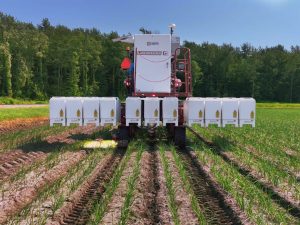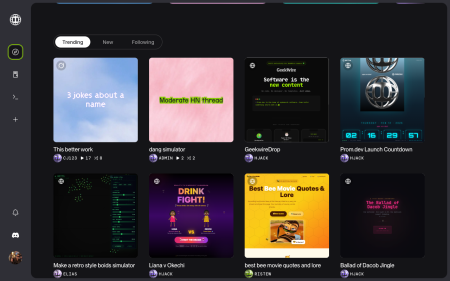Seattle’s AI Startup Scene Flourishes with Innovative New Ventures
Seattle’s entrepreneurial landscape is witnessing a vibrant wave of artificial intelligence startups tackling challenges across multiple industries. These early-stage companies are applying intelligent systems to transform education, healthcare, marketing, and cloud security, creating solutions that address real-world problems. From helping university students launch businesses to simplifying healthcare navigation for employees, these ventures represent the innovative spirit driving Seattle’s tech ecosystem forward. This new cohort of AI-powered startups demonstrates how the technology can be harnessed to create practical, scalable solutions that promise to reshape how we work, learn, and access services.
At the forefront of education technology, two Seattle startups are making their mark. Aspir, founded in 2025 by Nicole Doyle, a tech recruiting veteran with experience at Ford, AWS, Uber, and Meta, has developed an AI co-pilot to help university students launch startups more efficiently. The platform combines guided workflows, document generation, and task management with the goal of cutting “time-to-first business” in half. As Aspir prepares to launch pilots at five universities, it plans to generate revenue through a freemium model for students and institutional licenses for universities. While the company smartly taps into the growing student founder movement, it will need to secure solid university partnerships to overcome the challenge of relying on students with enthusiasm but limited budgets. Meanwhile, MathGPT, founded in 2023 by Cornell University computer science students Nour Gajial and Yanni Kouloumbis, helps students understand math and STEM concepts through step-by-step explanations, video lessons, and practice exams. Their app, PocketMath, allows learners to chat with an AI tutor for immediate assistance. This bootstrapped startup has already achieved impressive results, surpassing seven figures in annual recurring revenue last year and reporting more than 10 million users. However, they face the challenge of maintaining their position in an increasingly crowded AI tutoring market.
In the healthcare sector, Decipher Healthcare is addressing the common frustration of navigating benefits systems. Founded in 2025 and part of the AI2 Incubator in Seattle, this startup has created an AI-powered healthcare navigation app that helps employees find providers, check benefits, and understand bills without relying on call centers. CEO Pete Francis, who previously co-founded Xembly and held leadership roles at Qualtrics and T-Mobile, leads the company alongside co-founder Sid Bothra, a former UnitedHealth Group executive. Their HIPAA-compliant chat interface integrates with benefits systems to automate common tasks and requests, targeting small and mid-sized employers. The company has already begun running paid pilots, demonstrating early market validation. Decipher’s approach to tackling one of healthcare’s most universal pain points—benefits confusion—with a pragmatic, automation-first strategy could resonate strongly with employers. However, they face competition from established players like Accolade and Quantum Health, which already have employer trust and integrations, requiring Decipher to deliver a significantly better user experience to gain market share.
The marketing intelligence space is being transformed by SolyCrys AI, founded in 2025. This bootstrapped company turns fragmented marketing and industry data into real-time intelligence, integrating with enterprise LLMs to track customer sentiment, competitive moves, and market trends. CEO Gwen Chen brings valuable experience as a former head of product marketing at AWS and a marketing leader at UiPath. She leads the company alongside co-founders Jia Chang, who spent nearly 15 years at Microsoft, and Eason Wang, a former director of product management at Tencent and Alibaba. This leadership team combines deep expertise in both technology and marketing, positioning them well to understand enterprise needs. SolyCrys AI is already working with enterprise users in tech and retail, showing early traction in transforming chaotic marketing data into actionable intelligence. The company addresses a deep pain point for enterprises, but faces the challenge of differentiating itself in a crowded market where many analytics vendors claim similar capabilities. To succeed, SolyCrys will need to demonstrate faster insights or unique data pipelines that competitors cannot easily replicate.
Cloud security is the focus of StratoCloud, founded in 2024 and backed by the AI2 Incubator. This startup aims to secure and simplify multi-cloud operations across AWS, Azure, and Google Cloud through tools that automate compliance, remove standing credentials, and provide unified visibility across environments. The company reports that customers see more than 50% faster compliance preparation using their solutions. Led by Thiru Bhat, a former director at VMWare and principal software engineer at Microsoft, and co-founder Dean Efrati, who spent more than 12 years at VMWare in engineering leadership roles, the team brings substantial technical expertise to the challenge. StratoCloud’s security-first approach directly addresses enterprise pain points in managing multi-cloud environments, which resonates in today’s complex IT landscapes. However, the market for cloud security and posture tools is saturated with competitors, including well-established players like Wiz, Orca, and Palo Alto Networks. To carve out a lasting position, StratoCloud will need to develop unique capabilities that these larger companies cannot easily duplicate.
These five startups represent a cross-section of Seattle’s innovative AI ecosystem, each tackling significant challenges in their respective industries. From Aspir’s mission to democratize startup creation for students to Decipher Healthcare’s effort to simplify benefits navigation, from MathGPT’s success in making STEM education more accessible to SolyCrys AI’s work in marketing intelligence and StratoCloud’s cloud security solutions, these companies demonstrate the breadth of AI applications emerging from the region. While each faces competitive challenges and the need to differentiate in increasingly crowded markets, they also show promise in addressing real needs with practical, AI-driven solutions. The founders bring diverse experiences from tech giants like Microsoft, AWS, VMWare, and Alibaba, suggesting they have the expertise needed to navigate the complexities of building AI businesses. As these startups continue to develop, secure customers, and refine their offerings, they will contribute to Seattle’s reputation as a hub for artificial intelligence innovation and entrepreneurship, potentially reshaping how we approach problems across multiple industries.















